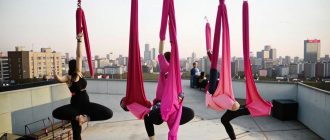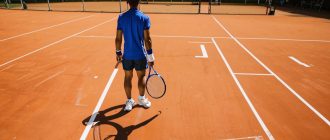Rest that you can’t do without. Why do you need recovery training?

Whatever the goal, without them you are unlikely to achieve the desired result.
Many of us at least once had to work hard on physical fitness. And everyone’s tasks could be quite different: whether it’s the usual desire to get the body in order before a vacation or the urgent need to prepare for serious competitions. And at a certain point, daily exercises on exercise machines and the increasing number of kilometers covered by running made themselves felt. Instead of noticeable progress we get fatigue, muscle pain and absolute unwillingness to get out of bed. The reason for this is simple: the body simply could not cope with the sudden load and burned out, like a light bulb that works day and night. In order to prevent a decline in strength, it is important to remember about recovery training, which is simply necessary during intense loads.
What is recovery training?
Recovery training is a part of a training plan that involves reducing the base load, but never abandoning it, so that the athlete does not lose form. Recovery training is especially necessary for athletes during the pre-competition and post-competition “recovery” periods. You are likely to say, “How am I going to slow down my training? You can’t slow down on the way to your goal!” We’ll answer: don’t chase time. This priority will definitely drive you into a dead end.

Secondly, the central nervous system begins to suffer. The brain simply lacks the strength to send signals to the muscles. As a consequence, coordination is lost, general lethargy appears, and motivation disappears. There is a logical explanation for this: at the maximum load the body spews out adrenaline in very large quantities. Adventurers chase after it when they get on a roller coaster. But during exercise, this hormone doesn’t get on your side. It interferes with the production of dopamine, the feel-good hormone. You start to burn out emotionally, your mood is lost along with your desire to go to the gym. In this case, you can forget about winning at competitions, as well as about a chiseled figure. After all, with a lack of dopamine, the body will start looking for other sources of happiness. The first thing it will remember is sweet and fatty foods that contain too many calories.
Of course, if you work out infrequently, about three times a week, and in a measured manner, the body will likely handle the task of recovery on its own. But if your plan calls for more frequent and intense exercise, recovery workouts are a must. They will help you to start with full enthusiasm and not give up halfway to your dream figure.







